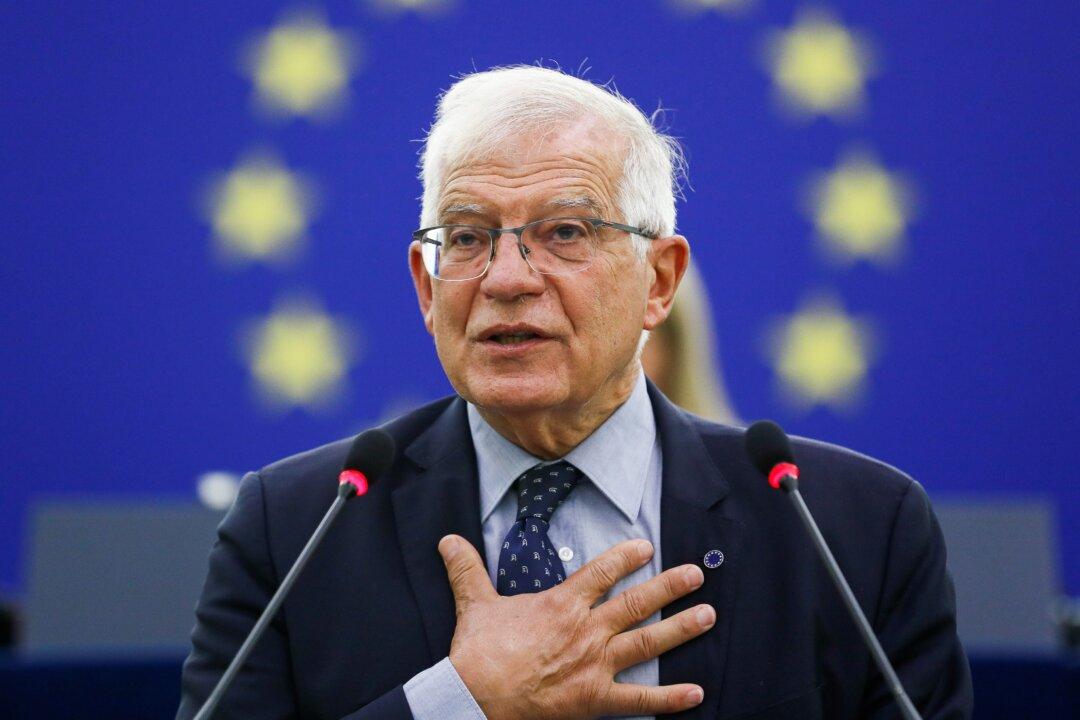Chinese leaders “did not want to talk about Ukraine” during Friday’s high-profile summit between the European Union and Beijing, the EU’s foreign policy chief said, describing the session as a “deaf dialogue.”
“China wanted to set aside our difference on Ukraine,” Josep Borrell told a plenary session of the European Parliament on Tuesday evening. “They didn’t want to talk about Ukraine. They didn’t want to talk about human rights and other issues, and instead focused on the positive things.”





